Mozambique: INGD launches code of conduct for humanitarian actors
Jangamo residents must pay for upkeep of water system
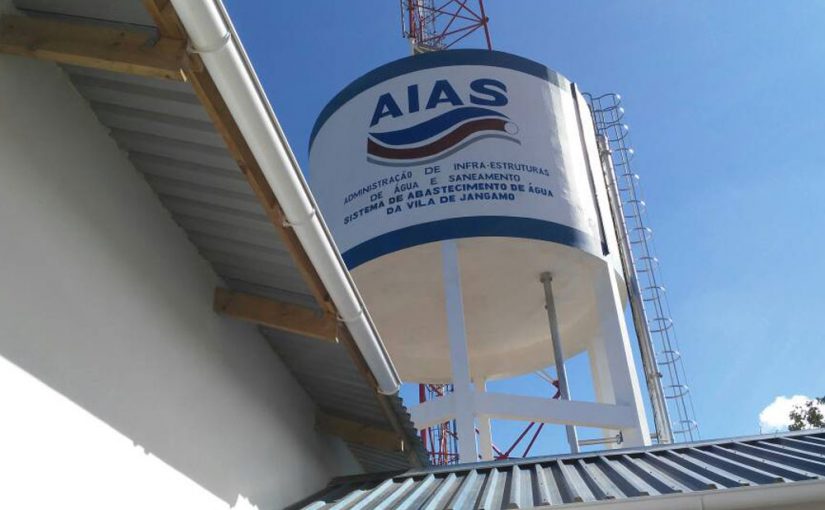
Unicef / Gabrie Pereira / The Jangamo system cost 52 million meticais (about 864,000 US dollars, at current exchange rates), disbursed by the Mozambican government, the European Union and the United Nations Children’s Fund (UNICEF).
The governor of the southern Mozambican province of Inhambane, Daniel Chapo, on Tuesday urged residents of the town of Jangamo to pay for the maintenance of the new water supply system that he had just inaugurated.
The Jangamo system cost 52 million meticais (about 864,000 US dollars, at current exchange rates), disbursed by the Mozambican government, the European Union and the United Nations Children’s Fund (UNICEF). It has the capacity to pump 250,000 litres of clean water a day.
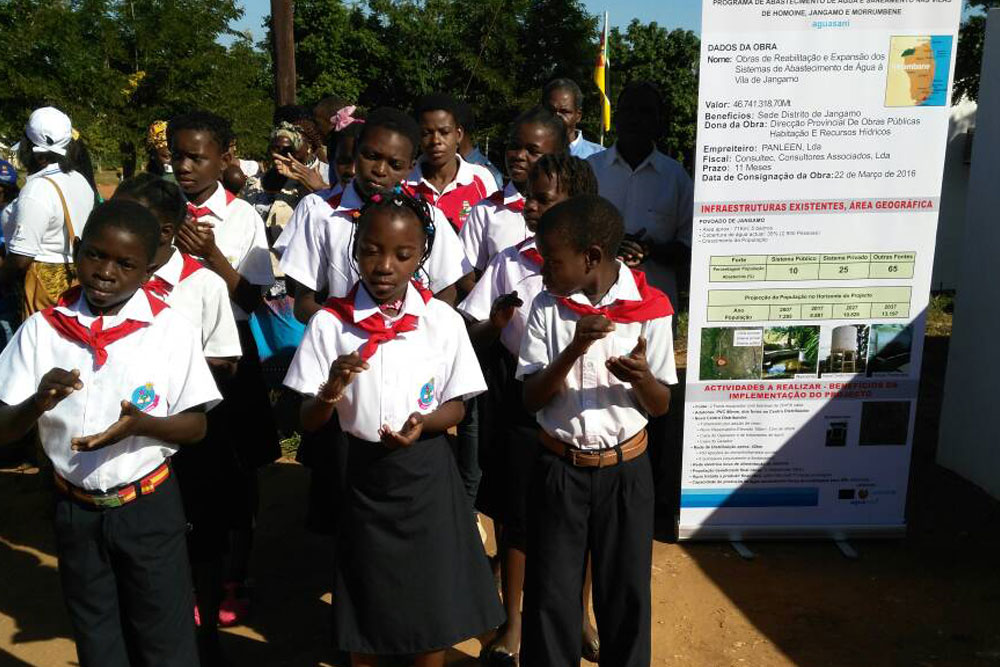
Speaking at the rally held after the system was inaugurated, Chapo urged the population of the town to use the new facility correctly to ensure that it would last a long time. He guaranteed that the water that arrives in the homes of Jangamo residents is fit to drink, since it undergoes appropriate treatment, just like the water supply in the two main cities in the province, Inhambane City and Maxixe.
But clean water is not free, the governor insisted. “To have water here in Jangamo throughout our lives, we have to contribute”, he said. “But in Jangamo, we shall pay a symbolic price”.
Initially, only 6,500 households will receive water from the new system. These are the residents of two of Jangamo’s five neighbourhoods. It is expected that, at a later stage, the system will be expanded to cover the other three neighbourhoods.
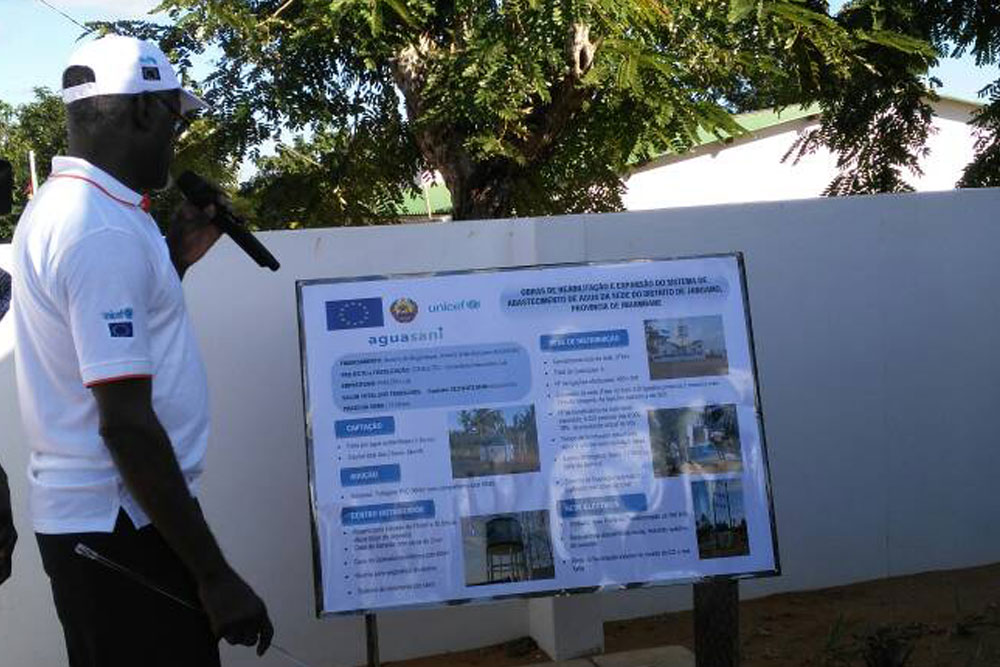
In a message read out to the rally, a representative of the Jangamo resident, Francisco Lauriciana, expressed joy at the new water system, and the reduction in hunger in this part of the country. She claimed the latter was due to an expansion in agricultural production made possible by the District Development Fund (FDD), still commonly known as “the seven million”, because it began, in 2006, as a transfer of seven million meticais (about 116,300 US dollars) from the state budget to every district in the country.
The money was supposed to be lent to people who had viable projects that would create jobs or boost food security. But the FDD has come under severe criticism, including from President Filipe Nyusi, because the great majority of beneficiaries have not repaid anything at all.
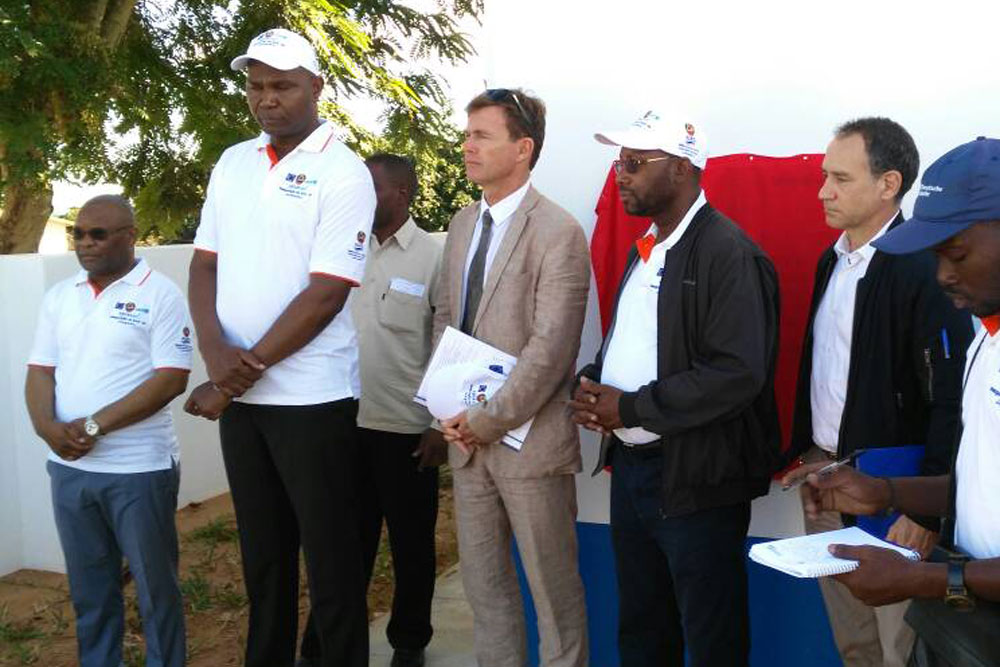




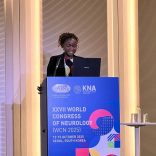








Leave a Reply
Be the First to Comment!
You must be logged in to post a comment.
You must be logged in to post a comment.